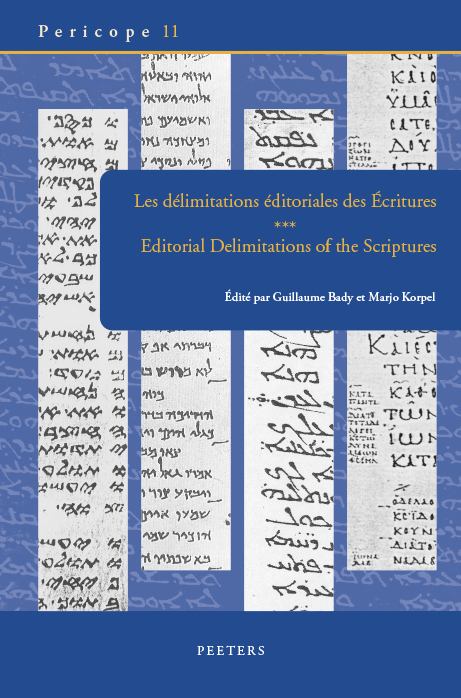

 0
EN
0
EN

From time immemorial scribes provided their manuscripts with visual markings guiding the reader to the interpretation they deemed correct. Colour, punctuation and empty spaces were their first distinctive layout markers. Later on elaborate ornaments, capitals and headers adorned the beginning of books, chapters and paragraphs.
All these helpful pointers are also present in manuscripts and prints of
the Bible. Their influence is evident in the reception history of the
Scriptures as codified in translations and commentaries. Strangely
enough, however, they are almost totally ignored in modern biblical
scholarship.
To remedy this gap Pericope series was started twenty years ago.
The present volume provides insight in what has been achieved in the
relatively young discipline of delimitation criticism up till now.
Through a dozen contributions, the biblical and patristic corpuses are
investigated in several directions: How were the texts delimited in
Antiquity? What intentions can be discerned behind delimitations in
Hebrew, Greek, Latin and Syriac Bibles? What transformation of meaning
do the divisions of textual units bring about in certain modern
translations compared to ancient documents? What are the nature and
signification of the divisions and titles in the Psalms, Greek and
Syriac? How did some Greek authors refer to a specific biblical text?
What can we learn from the Greek "synopses"? And what profit for this
kind of research has a digital tool like Biblindex to offer?
These are, without a doubt, the first milestones for new investigations to come.



